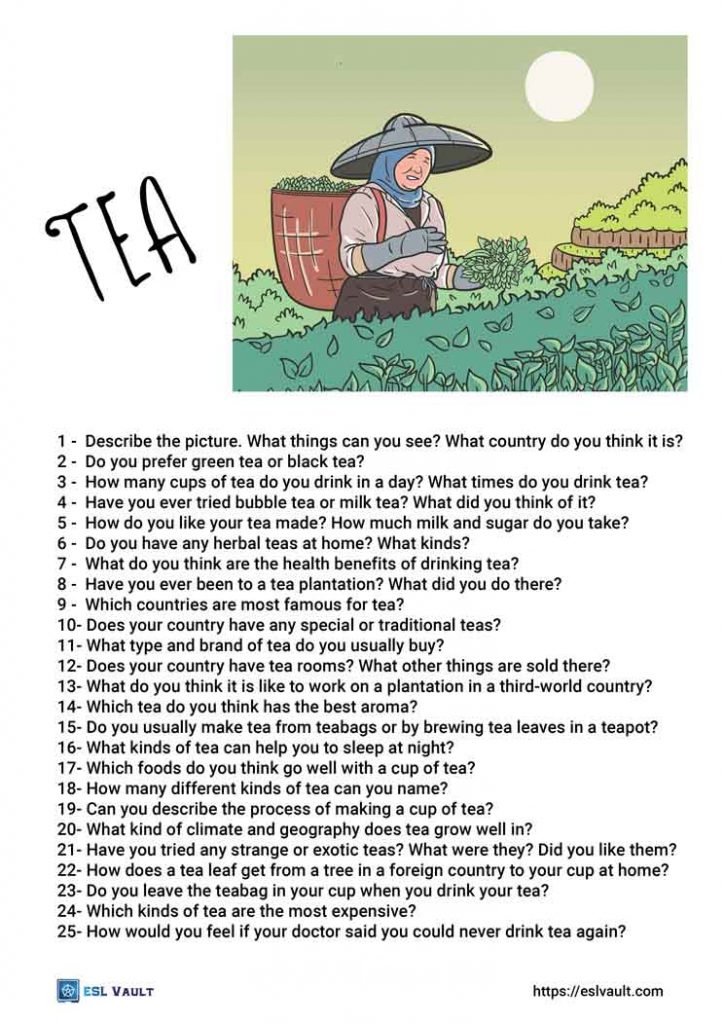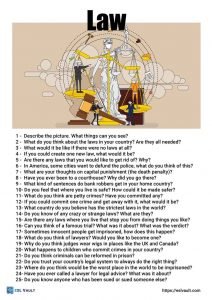Tea conversation questions
Here is a free discussion worksheet on the topic of tea. Words to go over with your class before starting this activity include – bubble, herbal, benefits, plantation, third-world, aroma, teabag, brew, process, climate, geography, exotic, and foreign.
The tea conversation questions are –
Do you prefer green tea or black tea?
How many cups of tea do you drink in a day? What times do you drink tea?
Have you ever tried bubble tea or milk tea? What did you think of it?
How do you like your tea made? How much milk and sugar do you take?
Do you have any herbal teas at home? What kinds?
What do you think are the health benefits of drinking tea?
Have you ever been to a tea plantation? What did you do there?
Which countries are most famous for tea?
Does your country have any special or traditional teas?
What type and brand of tea do you usually buy?
Does your country have tea rooms? What other things are sold there?
What do you think it is like to work on a plantation in a third-world country?
Which tea do you think has the best aroma?
Do you usually make tea from teabags or by brewing tea leaves in a teapot?
What kinds of tea can help you to sleep at night?
Which foods do you think go well with a cup of tea?
How many different kinds of tea can you name?
Can you describe the process of making a cup of tea?
What kind of climate and geography does tea grow well in?
Have you tried any strange or exotic teas? What were they? Did you like them?
How does a tea leaf get from a tree in a foreign country to your cup at home?
Do you leave the teabag in your cup when you drink your tea?
Which kinds of tea are the most expensive?
How would you feel if your doctor said you could never drink tea again?

Tea idioms
Here are some related tea expressions to share with your students –
If you say something is “not my cup of tea” you are saying you don’t like it. Alternatively, if you really do like something you can say that “It is just my cup of tea“.
We say something is a storm in a teacup if people get angry or upset about small insignificant problems. This can also be called a storm in a teapot.
If you ask somebody to spill the tea, you are asking them to share some gossip or a small secret.
When a person says that they wouldn’t do something for all the tea in China, they are saying they don’t want to do something and never will.





